Find Help
More Items From Ergsy search
-
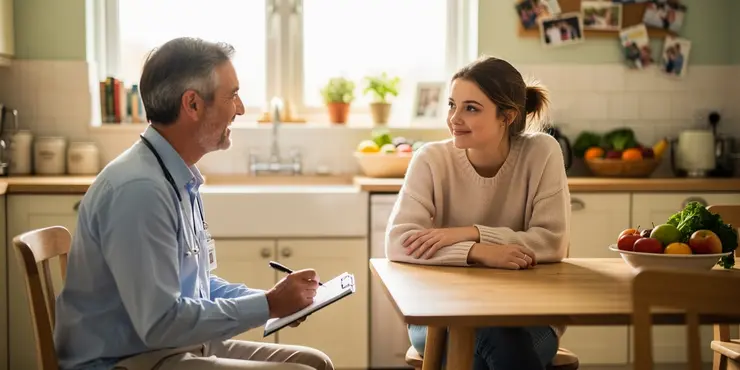
Eating disorders: treatment
Relevance: 100%
-
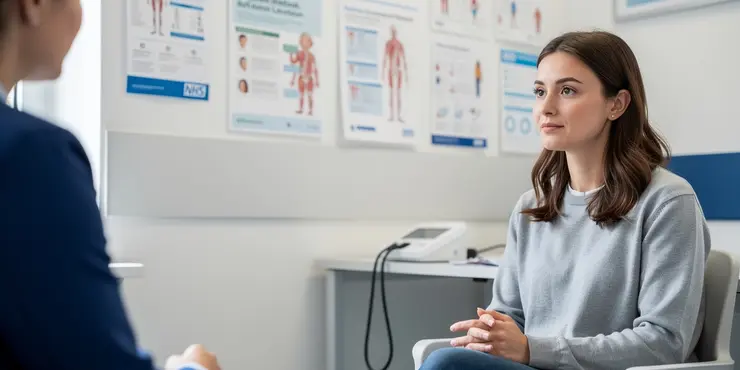
The treatment approach for an eating disorder
Relevance: 95%
-
What is an eating disorder?
Relevance: 82%
-
What is an Eating Disorder?
Relevance: 80%
-
Can eating disorders be treated?
Relevance: 79%
-
How are eating disorders diagnosed?
Relevance: 77%
-
Are eating disorders only about food?
Relevance: 75%
-
Is it possible to recover from an eating disorder?
Relevance: 74%
-
Are there preventative measures for eating disorders?
Relevance: 73%
-
Who is at risk for developing an eating disorder?
Relevance: 73%
-
What are common symptoms of eating disorders?
Relevance: 72%
-
What are the main types of eating disorders?
Relevance: 72%
-
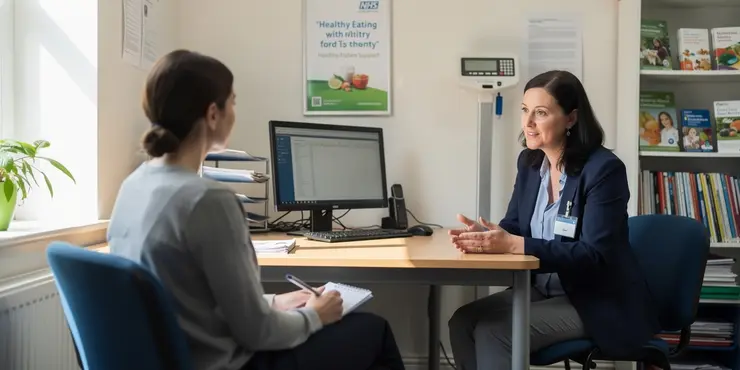
Jess Rann - Specialist Eating Disorders Dietitian
Relevance: 71%
-
What is the role of therapy in treating eating disorders?
Relevance: 70%
-
How can someone seek help for an eating disorder?
Relevance: 69%
-
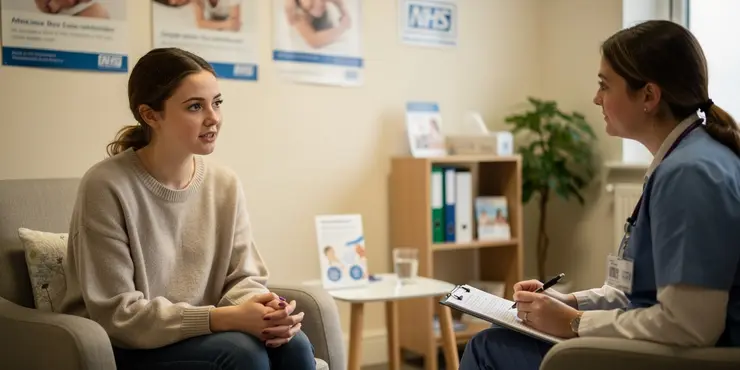
What is the impact of eating disorders on physical health?
Relevance: 69%
-
What is body dysmorphia and how is it related to eating disorders?
Relevance: 69%
-
What are some common myths about eating disorders?
Relevance: 69%
-
What are the early warning signs of an eating disorder?
Relevance: 68%
-
Can eating disorders occur with other mental health conditions?
Relevance: 68%
-
What are the long-term effects of untreated eating disorders?
Relevance: 68%
-
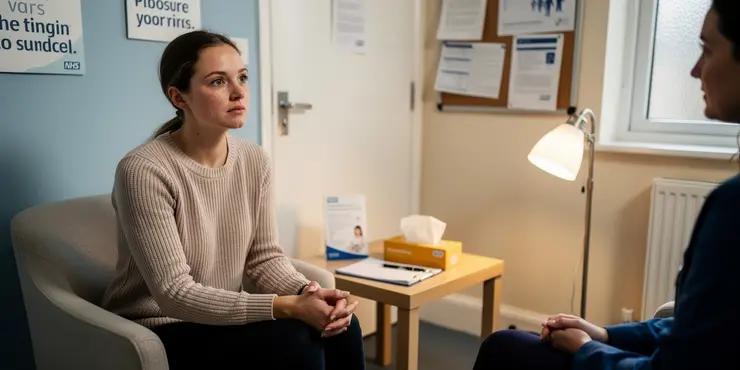
How do eating disorders affect mental health?
Relevance: 67%
-
How can someone help a loved one with an eating disorder?
Relevance: 65%
-
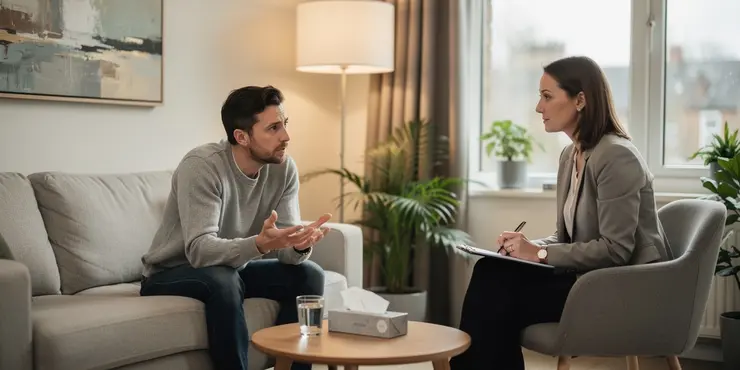
BSL - Treatment of panic disorder
Relevance: 58%
-
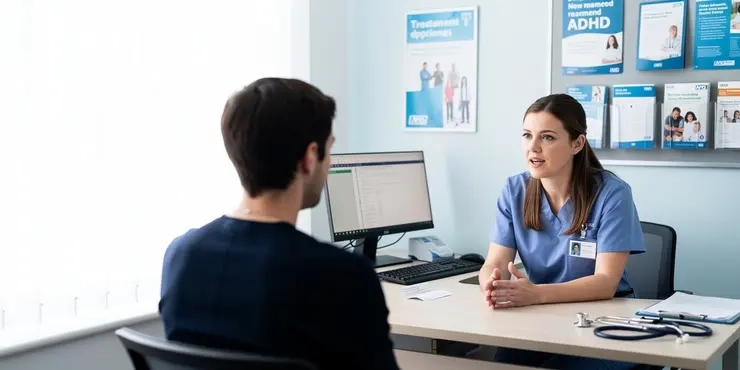
Attention deficit hyperactivity disorder (ADHD) - Treatment
Relevance: 43%
-
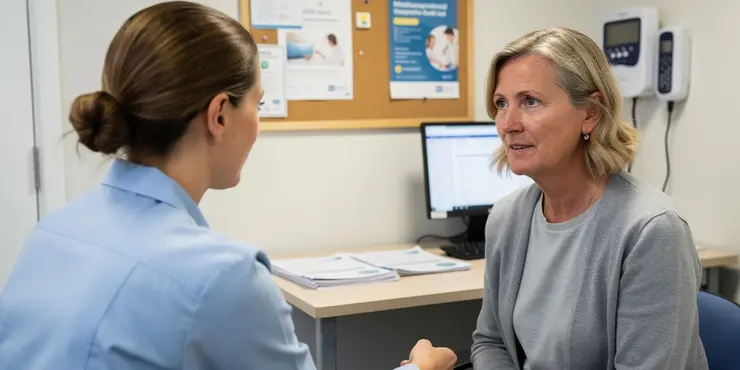
What is seasonal affective disorder - or SAD?
Relevance: 42%
-
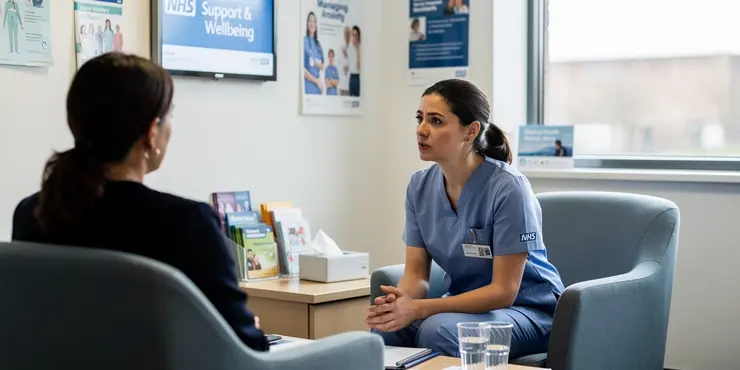
BSL - Symptoms of panic disorder
Relevance: 42%
-
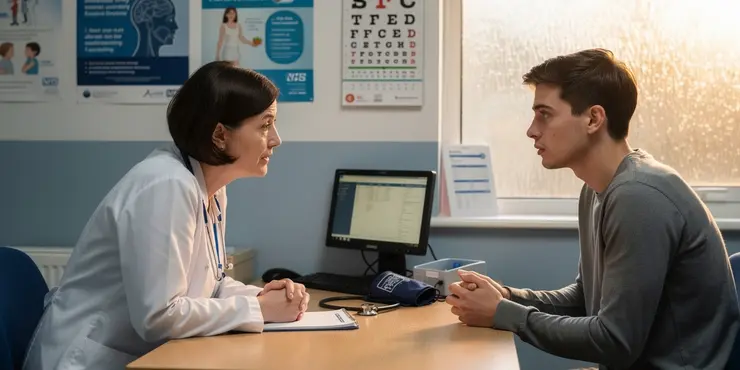
BSL - Diagnosis of panic disorder
Relevance: 41%
-
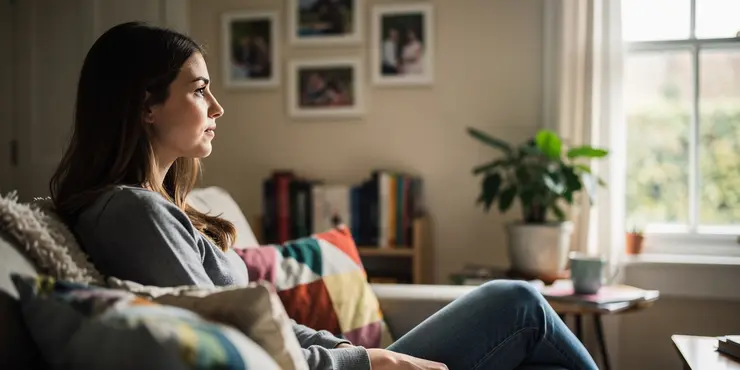
Living with Bipolar Disorder
Relevance: 41%
-
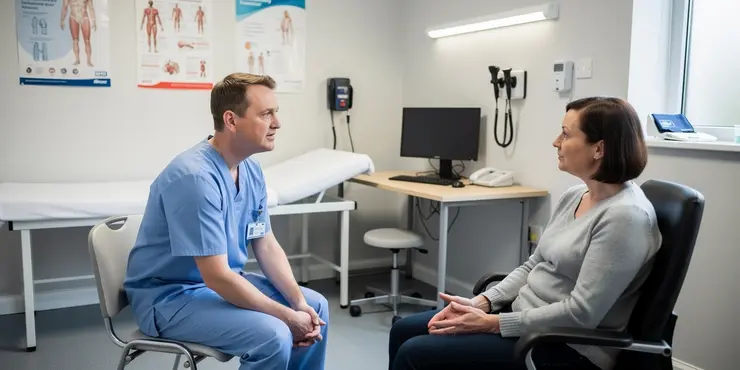
BSL - Introduction to panic disorder
Relevance: 41%
-
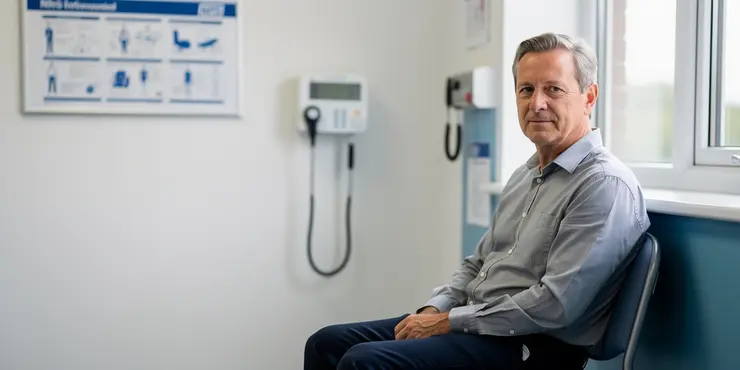
Bipolar disorder: Rod's story | NHS
Relevance: 40%
-
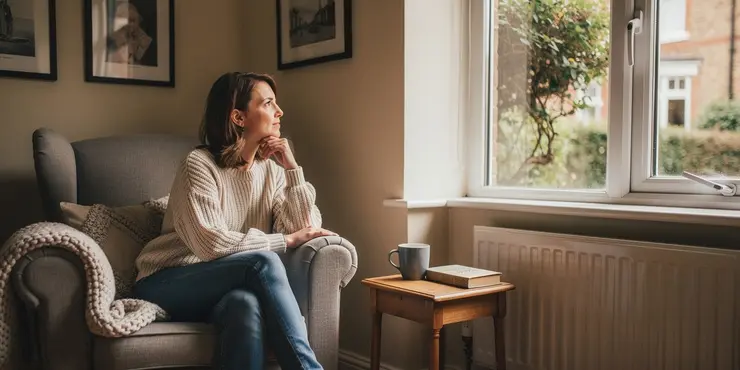
What is Seasonal Affective Disorder (SAD)?
Relevance: 40%
-
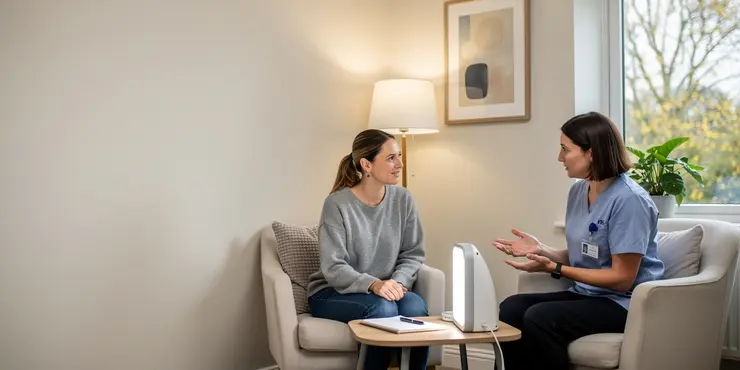
Strategies for Managing Seasonal Affective Disorder
Relevance: 40%
-
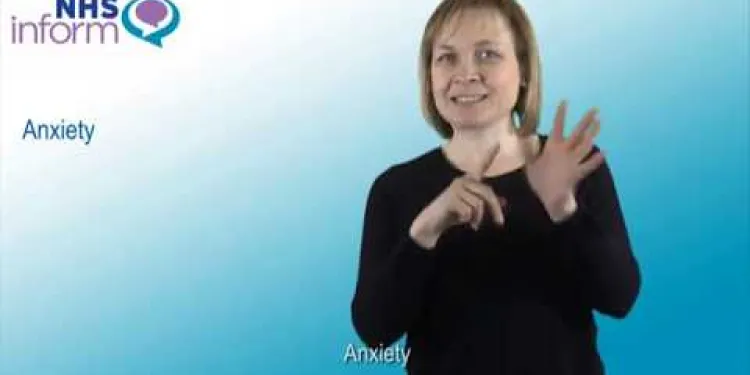
Generalised anxiety disorder (GAD)
Relevance: 38%
-
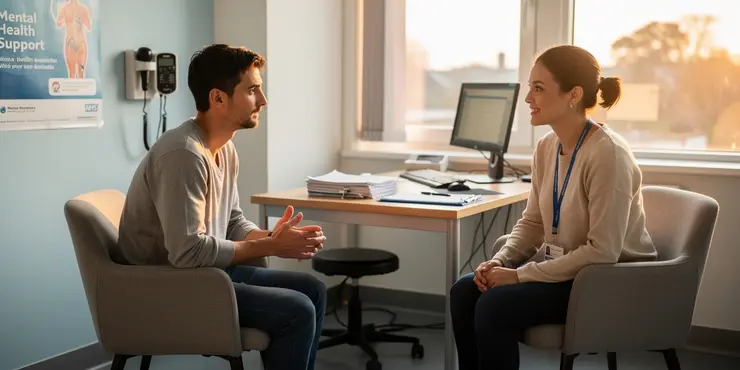
BSL - Causes of panic disorder
Relevance: 38%
-
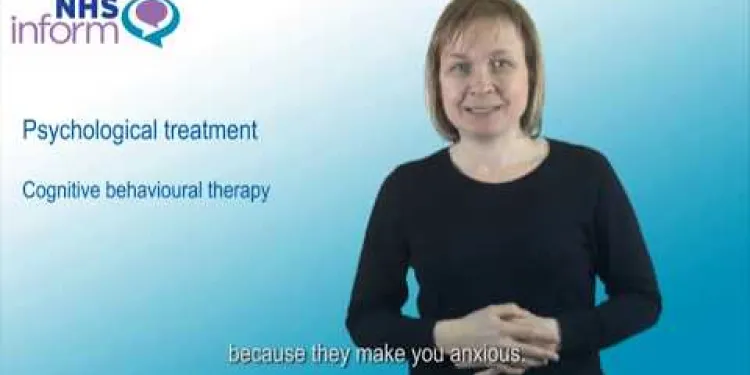
Treating generalised anxiety disorder (GAD)
Relevance: 37%
-
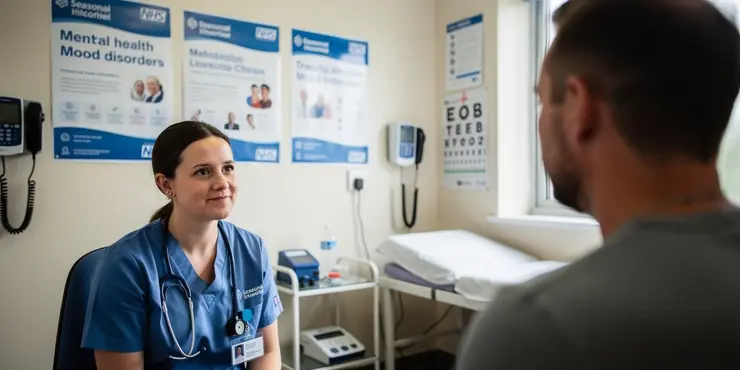
How common is Seasonal Affective Disorder?
Relevance: 36%
-
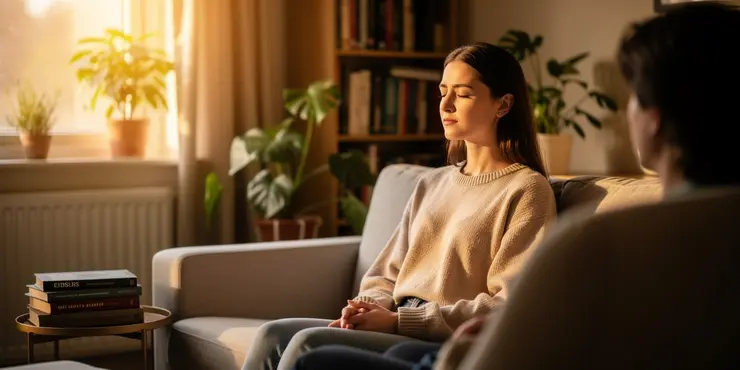
BSL - Panic disorder: things you can do to help yourself
Relevance: 36%
-

What is Seasonal Affective Disorder? (SAD)
Relevance: 34%
-

BSL - Diagnosis of obsessive compulsive disorder (OCD)
Relevance: 34%
Eating Disorders: Treatment
Introduction to Eating Disorder Treatment
Eating disorders, such as anorexia nervosa, bulimia nervosa, and binge eating disorder, are serious mental health conditions that require comprehensive treatment. In the United Kingdom, various treatment options are available, tailored to the individual's needs and condition severity.
Types of Treatment
The treatment of eating disorders often involves a multi-disciplinary approach, including medical, nutritional, and psychological support. Here are some common treatment methods:
Cognitive Behavioural Therapy (CBT)
CBT is one of the most effective treatments for eating disorders. It helps individuals identify and change distorted thinking patterns and behaviours. In the UK, specialised eating disorder therapists use CBT to address the underlying issues contributing to the disorder.
Family-Based Therapy (FBT)
FBT, particularly for young individuals, involves the family in the treatment process. The approach empowers parents to take an active role in restoring their child's weight and normal eating habits. This method is supported by the National Institute for Health and Care Excellence (NICE) guidelines.
Medical and Nutritional Support
Medical monitoring is crucial for individuals with eating disorders due to potential health complications. Nutritional counselling by dietitians can help establish regular eating patterns and address misconceptions about food. In severe cases, inpatient care might be necessary to ensure safe and effective treatment.
Outpatient and Inpatient Services
In the UK, treatment can be delivered through outpatient services, allowing individuals to receive therapy while living at home. However, for those needing intensive care, inpatient services are available. These services provide a controlled environment for medical stabilisation and intensive therapy.
Support Groups and Aftercare
Ongoing support is critical for recovery from eating disorders. Support groups offer a platform for individuals to share experiences and receive encouragement. Aftercare services ensure continuous support post-treatment, preventing relapse and promoting long-term recovery.
Conclusion
Treatment for eating disorders in the United Kingdom is comprehensive and involves a combination of therapeutic modalities, medical, and nutritional support. Early intervention and a tailored treatment plan are essential for recovery, providing individuals with the best chance of overcoming their disorder.
Eating Disorders: Treatment
Introduction to Eating Disorder Treatment
Eating disorders like anorexia, bulimia, and binge eating are serious problems. They need special treatment. In the UK, there are different ways to help, depending on what each person needs.
Types of Treatment
To help someone with an eating disorder, different types of help are used. This includes doctors, food experts, and therapists. Here are some ways they help:
Cognitive Behavioural Therapy (CBT)
CBT is a talking therapy that is very helpful for eating disorders. It helps people change how they think and act about food and eating. In the UK, specially trained therapists help with this method.
Family-Based Therapy (FBT)
FBT is when the whole family helps the young person get better. Families help their child eat well and get back to a healthy weight. This method is supported by experts in the UK.
Medical and Nutritional Support
Doctors need to check people with eating disorders because it can affect their health. Dietitians help people eat regularly and understand food better. Sometimes, people might need to stay in a hospital to get the help they need.
Outpatient and Inpatient Services
In the UK, some people get help while living at home. This is called outpatient service. Others might need more care and stay in a hospital. This is called inpatient service, and it provides a safe place for treatment.
Support Groups and Aftercare
After treatment, it is important to keep getting support. Support groups let people talk about their feelings and help each other. Aftercare helps to keep people healthy and stops them from getting sick again.
Conclusion
In the UK, there are many ways to help people with eating disorders. Getting help early and having a plan made just for them is important. This gives people the best chance to get better.
Frequently Asked Questions
What are the common types of eating disorders?
The most common types of eating disorders include Anorexia Nervosa, Bulimia Nervosa, Binge-Eating Disorder, and Other Specified Feeding or Eating Disorder (OSFED).
How are eating disorders treated in the UK?
Treatment often involves a combination of psychological therapy, nutritional education and advice, medical monitoring, and sometimes medication.
What types of therapy are used to treat eating disorders?
Cognitive Behavioral Therapy (CBT), Family-Based Therapy (FBT), and Dialectical Behavior Therapy (DBT) are commonly used therapies.
Can eating disorders be treated on the NHS?
Yes, eating disorders can be treated through the NHS. You will typically need a referral from your GP to access specialized services.
How long does treatment for an eating disorder usually take?
Treatment duration varies depending on the type and severity of the disorder but can range from a few months to several years.
What should I do if I think I have an eating disorder?
If you think you have an eating disorder, it is important to seek help from a healthcare provider such as your GP. Early intervention can be crucial.
Are there support groups for eating disorders in the UK?
Yes, there are various support groups available, such as Beat and local community groups that offer support and resources.
Is medication used to treat eating disorders?
Medication may be prescribed to treat co-occurring conditions such as depression or anxiety, but it is usually not the primary treatment for eating disorders.
What role do dietitians play in treating eating disorders?
Dietitians help create balanced eating plans, provide nutritional education, and work with individuals to develop healthier relationships with food.
Can children and adolescents receive treatment for eating disorders?
Yes, there are specialized treatment options for children and adolescents, often involving family-based therapy.
What are the signs that someone might have an eating disorder?
Signs include extreme weight loss or gain, preoccupation with food or body image, withdrawing from social activities, and changes in eating habits.
Can people recover from eating disorders?
Yes, many people recover from eating disorders with the right treatment and support. Recovery is possible even after long durations of illness.
Are eating disorders more common in any particular gender or age group?
Eating disorders can affect individuals of any gender and age, though they are most commonly diagnosed in adolescents and young women.
What is the first step in getting help for an eating disorder?
The first step is usually to speak with your GP, who can provide an assessment and refer you to specialized services if needed.
How can families support a loved one with an eating disorder?
Families can support by being understanding, encouraging professional help, providing a supportive environment, and learning about the disorder.
What are some eating problems people can have?
There are different types of eating problems. The most common ones are:
- Anorexia: This is when people eat very little because they worry about their weight.
- Bulimia: This is when people eat a lot and then make themselves sick or use other ways to stop gaining weight.
- Binge-Eating: This is when people eat a lot of food in a short time and feel upset afterward.
- OSFED: This is when people have eating problems that do not fit into the other types.
If you or someone you know is dealing with these eating problems, it can help to speak with a doctor, a family member, or a support group. There are also apps and websites that can help with learning about eating problems and how to manage them.
How do doctors help people with eating problems in the UK?
Doctors and nurses help people who have problems with eating, like eating too little or too much. They use special plans and talk to help them get better.
Here are some ways they help:
- Talking Therapy: A person can talk with someone who listens and helps them understand their feelings about food.
- Food Plans: A helper can make a simple plan for what to eat each day.
- Medicines: Sometimes, doctors give medicine to help with feeling sad or worried.
- Family Support: Families can learn how to help their loved one eat better.
Tools that can help:
- Picture books about food and feelings.
- An app that shows healthy meal ideas.
- Relaxation exercises to feel calm.
Treatment often includes different ways to help. These can be talking to a therapist, learning about healthy eating, seeing a doctor, and sometimes taking medicine.
What kinds of therapy help with eating problems?
People can use special talking and support sessions to help with eating problems.
Here are some types of therapy that can help:
1. Talking Therapy: You talk with a therapist about your feelings and thoughts.
2. Group Therapy: You talk with other people who have the same problem. You can support each other.
3. Family Therapy: You and your family talk together with a therapist. This helps everyone understand and help each other.
4. Nutrition Help: You learn about healthy eating with the help of a nutrition expert.
These therapies help you feel better and learn good ways to deal with eating problems.
There are different types of talking therapies that help people feel better. Here are three of them:
1. CBT (Cognitive Behavioral Therapy): This helps you change how you think about things and how you act. It helps you feel better.
2. FBT (Family-Based Therapy): This is when the whole family works together to help someone get better. Families learn how to help and support each other.
3. DBT (Dialectical Behavior Therapy): This helps you understand and manage your big feelings. It teaches you how to stay calm and solve problems.
When talking with a therapist, you might find it helpful to write down your thoughts or draw pictures to show how you feel. Sometimes using apps or tools to practice these skills at home can also help!
Can the NHS help with eating problems?
Yes, the NHS can help people with eating problems. You usually need your doctor to refer you to special services.
How long does it take to get better from an eating problem?
Getting better from eating problems takes time. Everyone is different, so it can be quick for some people and longer for others. Here are some things that might help:
- Talk to a doctor or therapist for help.
- Join a support group to share your feelings.
- Be patient with yourself—it’s okay if it takes time.
Remember, getting better is a journey and you don't have to do it alone!
How long treatment takes can be different for each person. It depends on how serious the problem is. It can last only a few months or go on for many years.
What to Do If You Think You Have Problems with Eating
If you think you have trouble with eating:
- Tell an adult you trust. This could be a parent, teacher, or friend.
- Talk to a doctor. They can help you understand your feelings about food.
- You can call a help line for support. They are there to listen and help you.
- Remember, you are not alone. Many people can help you feel better.
Using simple techniques like writing down your feelings or drawing can help too.
If you think you have a problem with eating, it is important to talk to a doctor or nurse. They can help you. Getting help early is very important.
Can I find help for eating problems in the UK?
Yes, there are places that can help if you have eating problems in the UK. These are called support groups, where you can talk to people who understand and want to help. You can ask a grown-up to help you find them online or in your area. Talking to a doctor, teacher, or trusted adult can also be a good step.
Yes, there are groups that can help you. Some groups like Beat and others in your community can give support and helpful information.
Can medicine help with eating problems?
Doctors might give medicine to help with other problems like feeling very sad or worried. But medicine is usually not the main way to help with eating problems.
What do dietitians do to help people with eating disorders?
Dietitians are food experts. They help people eat the right food to stay healthy.
When someone has an eating problem, like eating too much or not eating enough, dietitians help them find the right food plan.
They work with doctors and therapists. Together, they help the person feel better.
Dietitians teach about healthy foods and how to eat in a balanced way. They support people during their recovery.
If you need help, talk to a dietitian. They have helpful tips and plans that can make you feel better.
Using tools like picture guides and food diaries can also help understand and manage your eating.
Dietitians help people eat healthy. They make plans for good food, teach about food, and help people enjoy their meals in a healthy way.
Can kids and teenagers get help for eating problems?
Yes, kids and teenagers can get help for eating problems.
Doctors and other helpers can give treatment. Family and friends can support too.
Yes, there are special ways to help kids and teenagers. These often include working with their families in therapy.
What are the signs that someone might have problems with eating?
It is important to know the signs that someone may have trouble with eating. This can help get them the support they need.
Here are some things to look for:
- They might stop eating or eat a lot at once.
- They may worry a lot about their weight or how they look.
- They might say they are "too fat" even if they are not.
- You might notice they are losing or gaining weight quickly.
- They could be very upset or sad about food.
- They may hide food or eat in secret.
If you think someone has an eating problem, it's good to talk to a trusted adult, like a parent or teacher. They can help find the right support.
Signs you might notice are losing or gaining a lot of weight, thinking a lot about food or how you look, not wanting to hang out with friends, and eating differently than before.
Can people get better from eating problems?
Yes, people can get better from eating problems with help.
Eating problems are when people have trouble with eating healthy.
Doctors and helpers can support people to eat well again.
Here are some ways that can help:
- Talk to a doctor or nurse.
- Have support from family and friends.
- See a counselor or therapist.
- Join a support group to share feelings.
Getting better can take time, but people can learn to eat healthy again with the right help.
Yes, many people get better from eating problems. You need the right help and support. You can get better even if you have been sick for a long time.
Here are some things that can help:
- Talk to a doctor or a counselor. They can give you advice and support.
- Join a support group. You can talk to other people who understand.
- Try relaxation exercises like deep breathing. This can make you feel calmer.
- Ask someone you trust for help. You don't have to do this alone.
Remember, you are not alone, and you can get better.
Do more boys or girls, or people of certain ages, have eating problems?
Eating problems can happen to anyone, but they are more common in some groups. We will look at who might have eating problems more often. There are tools like reading aids and picture cues that can help people understand better.
Eating disorders can happen to anyone, no matter if you are a boy or a girl and no matter how old you are. But eating disorders are usually found the most in teenagers and young women.
How do you start getting help for eating problems?
If you think you have an eating problem, the first thing to do is speak to someone you trust. This could be a family member, friend, teacher, or doctor.
You can also use tools that help with reading, like text-to-speech apps, to read information out loud.
First, talk to your family doctor. They can check what's wrong and tell you if you need to see someone else for more help.
How can families help someone they love who has an eating problem?
Families can help someone with an eating problem by:
- Talking and listening: Spend time with them. Let them share their feelings. Listen carefully.
- Be kind and patient: Be understanding and gentle. It can take time for them to get better.
- Learn about eating problems: Read and learn about eating problems. This helps you know more about what they are going through.
- Encourage them to get help: Talk to a doctor or a therapist who knows about these issues.
- Offer support: Let them know you are there for them. Encourage them to do things they enjoy.
Tools and techniques:
- Use simple words when talking.
- Send friendly texts or reminders to show you care.
- Use pictures or drawings to help explain things.
Families can help by being kind, asking a doctor or therapist to help, making home a nice place, and learning more about the problem.
Useful Links
This website offers general information and is not a substitute for professional advice.
Always seek guidance from qualified professionals.
If you have any medical concerns or need urgent help, contact a healthcare professional or emergency services immediately.
Some of this content was generated with AI assistance. We’ve done our best to keep it accurate, helpful, and human-friendly.
- Ergsy carfully checks the information in the videos we provide here.
- Videos shown by Youtube after a video has completed, have NOT been reviewed by ERGSY.
- To view, click the arrow in centre of video.
- Most of the videos you find here will have subtitles and/or closed captions available.
- You may need to turn these on, and choose your preferred language.
- Go to the video you'd like to watch.
- If closed captions (CC) are available, settings will be visible on the bottom right of the video player.
- To turn on Captions, click settings .
- To turn off Captions, click settings again.
More Items From Ergsy search
-

Eating disorders: treatment
Relevance: 100%
-

The treatment approach for an eating disorder
Relevance: 95%
-
What is an eating disorder?
Relevance: 82%
-
What is an Eating Disorder?
Relevance: 80%
-
Can eating disorders be treated?
Relevance: 79%
-
How are eating disorders diagnosed?
Relevance: 77%
-
Are eating disorders only about food?
Relevance: 75%
-
Is it possible to recover from an eating disorder?
Relevance: 74%
-
Are there preventative measures for eating disorders?
Relevance: 73%
-
Who is at risk for developing an eating disorder?
Relevance: 73%
-
What are common symptoms of eating disorders?
Relevance: 72%
-
What are the main types of eating disorders?
Relevance: 72%
-

Jess Rann - Specialist Eating Disorders Dietitian
Relevance: 71%
-
What is the role of therapy in treating eating disorders?
Relevance: 70%
-
How can someone seek help for an eating disorder?
Relevance: 69%
-

What is the impact of eating disorders on physical health?
Relevance: 69%
-
What is body dysmorphia and how is it related to eating disorders?
Relevance: 69%
-
What are some common myths about eating disorders?
Relevance: 69%
-
What are the early warning signs of an eating disorder?
Relevance: 68%
-
Can eating disorders occur with other mental health conditions?
Relevance: 68%
-
What are the long-term effects of untreated eating disorders?
Relevance: 68%
-

How do eating disorders affect mental health?
Relevance: 67%
-
How can someone help a loved one with an eating disorder?
Relevance: 65%
-

BSL - Treatment of panic disorder
Relevance: 58%
-

Attention deficit hyperactivity disorder (ADHD) - Treatment
Relevance: 43%
-

What is seasonal affective disorder - or SAD?
Relevance: 42%
-

BSL - Symptoms of panic disorder
Relevance: 42%
-

BSL - Diagnosis of panic disorder
Relevance: 41%
-

Living with Bipolar Disorder
Relevance: 41%
-

BSL - Introduction to panic disorder
Relevance: 41%
-

Bipolar disorder: Rod's story | NHS
Relevance: 40%
-

What is Seasonal Affective Disorder (SAD)?
Relevance: 40%
-

Strategies for Managing Seasonal Affective Disorder
Relevance: 40%
-

Generalised anxiety disorder (GAD)
Relevance: 38%
-

BSL - Causes of panic disorder
Relevance: 38%
-

Treating generalised anxiety disorder (GAD)
Relevance: 37%
-

How common is Seasonal Affective Disorder?
Relevance: 36%
-

BSL - Panic disorder: things you can do to help yourself
Relevance: 36%
-

What is Seasonal Affective Disorder? (SAD)
Relevance: 34%
-

BSL - Diagnosis of obsessive compulsive disorder (OCD)
Relevance: 34%


